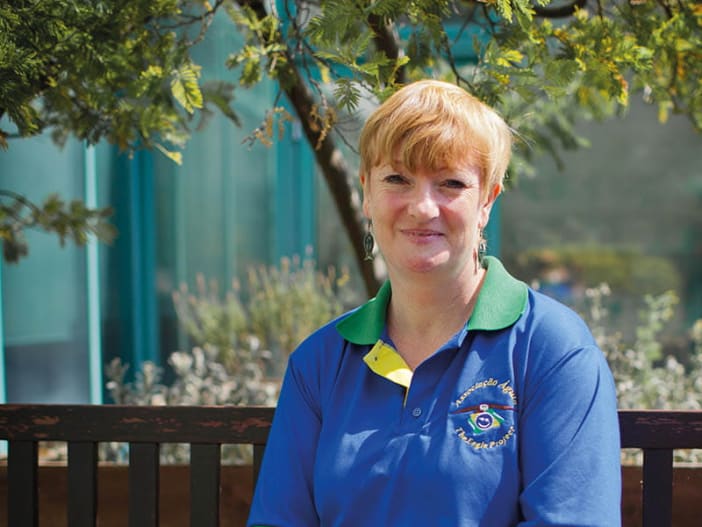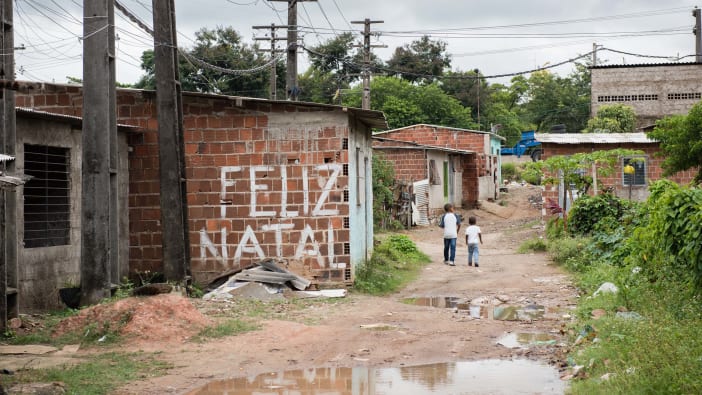by Gilda Liane da Cruz.
‘An abandoned child comes from an abandoned family.’ This is the concern of the Reconciliation of the Minor programme in São Paulo, Brazil. It began in 1986 as an attempt to respond to the breakdown of social life in our country. We began by providing a meal of thick soup for about 30 children and a few hours care from volunteer workers. We met on a piece of land owned by the Lutheran Evangelical Church in Vila São Jose, a district on the edge of the city of São Paulo. Now we look after about 300 children and teenagers offering three meals a day, various activities and a wide educational service from pre-school to professional courses.
There is a real need to support needy children from low income families on the edge of society – because many abandoned and street children come from such families. Our workers are mainly the mothers of children who are cared for and teenagers who belonged to our first group.
Paper-making
About 15 teenagers are involved and they work together as a team, dividing up the different tasks. We get scrap paper from printing works, cardboard of different service from pre-school to professional colours and use a lot of newspaper in the drying process.
The paper and cardboard are placed in buckets of water. The colour of the cardboard used determines the final colour of the paper. After soaking for several hours in water, the material is liquidised in a machine. The result is a liquid paste that is poured into a large flat container. A square sieve is then used to collect a thin layer of the paste-like substance. At this stage we add special effects such as a design or message. The excess water is removed from this thin layer of paste by pressing it with dry cloths. Then the thin layer is carefully removed from the mesh and placed between sheets of newspaper to dry. We pass a wooden roller over the sheets of newspaper to smooth the paper. For the final drying the newspaper is removed and the paper is left on a flat surface. Now we only have to trim the edges and we have a pretty and practical hand-made product to sell.
'After the project grew we started to have courses with both paid and voluntary helpers. I learned various things like; typing, cookery, drama, dance and computing. Now my mother is in the team of educators and I help in a team of teenagers. We have sports, school support groups, woodwork and a workshop for recycling paper. The manufacture of promotional cards from recycled paper helps the project be better known and gives me the chance to earn a small income of my own. I hope this will help me get a job and have the prospect of a better future.'
Renata de Jesus Souza, 16
Programa Comunitário Reconciliação do Menor, Rua Hilário Ascabusi 25, São Paulo – SP, Brazil.x








